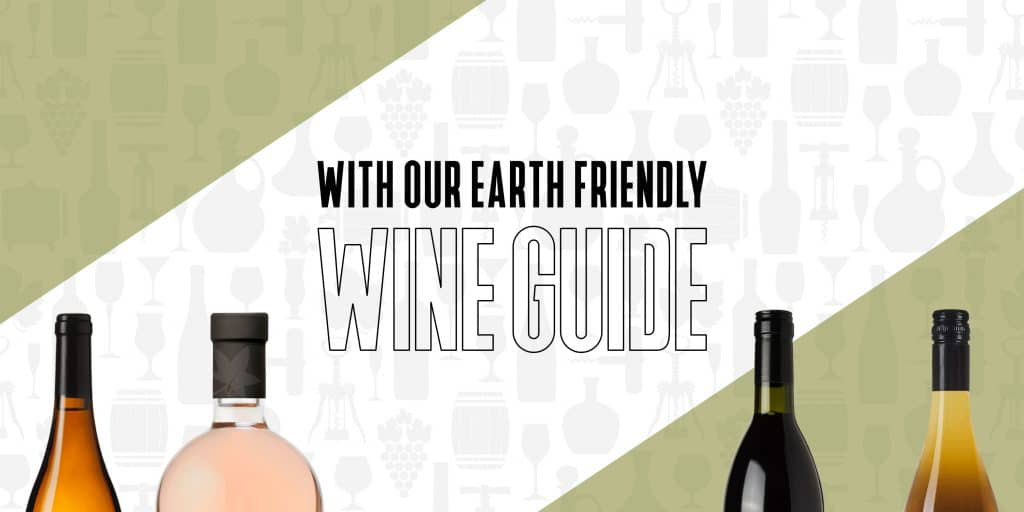
A Guide to Organic, Sustainable
and Biodynamic wines.
Organic, sustainable and biodynamic practices are being adopted by wineries and winemakers the world over, but what does it all mean?
Organic
There are two requirements that a wine, sold in Ontario, must meet in order to have an organic claim on its label: 1) 100% of the grapes used must be grown without the use of chemical pesticides, herbicides or synthetic fertilizers; and 2) the wine in bottle contain less than 250 parts per million of pm of SO2 (sulfites). Sulfites occur naturally, in small amounts, during fermentation – it is virtually impossible to create a wine that does not have any. But winemakers often add SO2 to prevent oxidation (among other reasons). This means, a wine could be labelled as “organically farmed” but not be “organic” because of the addition of sulfites.
Sustainable
Sustainability is the most broad of the three approaches. According to the LCBO: “The overarching philosophy here is to create the best wines possible while striving for economic viability and social responsibility, all in an ecologically responsible manner that ensures a positive environmental legacy. Sustainability looks beyond the needs of individual vineyards to the employees, communities and even people who visit the winery”.
Biodynamic
Biodynamic farming is “a spiritual-ethical-ecological approach to agriculture, gardens, food production and nutrition” (Biodynamic Farming and Gardening Association). Biodynamic winemaking goes beyond organic practices in an effort to balance an entire vineyard with nature and lunar cycles. The vineyard operates as a single, self-sustaining ecosystem, breeding and feeding back into itself.
Celebrate Earth Day with an organic / sustainable / biodynamic wine from the Buyers+Cellars Portfolio!
Salcheto
Salcheto’s organic and biodynamic estate is located in the historic district of Vino Nobile, in the southeast of the Siena province. Led by Michele Minelli since 1997 and producing wine for over 30 years, Salcheto is not only a representation of Tuscany’s rich heritage but also a pioneer in the construction of a future of environmental sustainability practicing manual harvesting and sulphite-free vinification, using native yeasts and “Bordolese Toscanella” (the lightest-weight wine bottle in the world), in an “off-grid” facility. The winery is Carbon Negative – it collects the carbon dioxide released as part of the fermentation process and repurposes it into renewable energy. In 2011, Salcheto was the first company in the world to certify the carbon footprint of a wine bottle.
Casa de Mouraz
Mouraz, situated in the heart of Dão Region, is a family estate that has farmed in a holistic and ecological way for many generations. The vineyards were certified organic in 1997 and certified biodynamic in 2009.
Chozas Carrascal
These wines from Valencia, Spain are certified organic. Indigenous flowers, trees and herbs are planted throughout the vineyards, naturally repelling insects, enriching the nutrients in the soil and contributing to the aromatic terroir of the wines. The winery is close to achieving carbon neutrality by using solar panels to reduce its energy use (-50%) and a gas system for temperature control (-20%).
Ronco delle Betulle
Located in Friuli Venezia Giulia, Ronco delle Betulle believes that “A wine’s personality always derives from the soil, the sun and the air; it is not something you can build”. Only estate-grown grapes are vinified and vineyards are cultivated with an artisanal approach without the use of synthetic chemicals, herbicides or chemical fertilizer.
Luretta
Located in Emilia-Romagna, in north-west Italy, Luretta uses organic, biodynamic and biodiversity principles and practices to craft structured, elegant wines. There is no use of irrigation or fertilizers and herbs are planted and tilled into the soil to add nitrates and nutrients.

